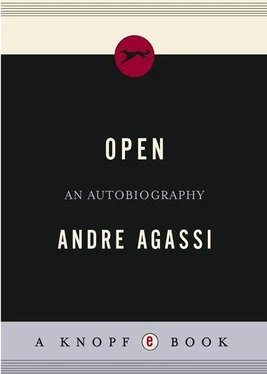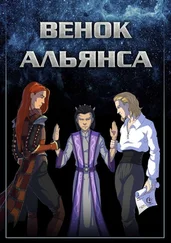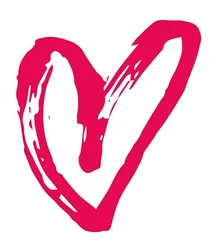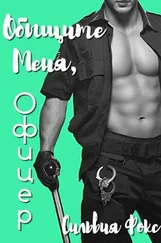Unknown - i a3f9967826fa0ec9
Здесь есть возможность читать онлайн «Unknown - i a3f9967826fa0ec9» весь текст электронной книги совершенно бесплатно (целиком полную версию без сокращений). В некоторых случаях можно слушать аудио, скачать через торрент в формате fb2 и присутствует краткое содержание. Жанр: Старинная литература, на английском языке. Описание произведения, (предисловие) а так же отзывы посетителей доступны на портале библиотеки ЛибКат.
- Название:i a3f9967826fa0ec9
- Автор:
- Жанр:
- Год:неизвестен
- ISBN:нет данных
- Рейтинг книги:5 / 5. Голосов: 1
-
Избранное:Добавить в избранное
- Отзывы:
-
Ваша оценка:
- 100
- 1
- 2
- 3
- 4
- 5
i a3f9967826fa0ec9: краткое содержание, описание и аннотация
Предлагаем к чтению аннотацию, описание, краткое содержание или предисловие (зависит от того, что написал сам автор книги «i a3f9967826fa0ec9»). Если вы не нашли необходимую информацию о книге — напишите в комментариях, мы постараемся отыскать её.
i a3f9967826fa0ec9 — читать онлайн бесплатно полную книгу (весь текст) целиком
Ниже представлен текст книги, разбитый по страницам. Система сохранения места последней прочитанной страницы, позволяет с удобством читать онлайн бесплатно книгу «i a3f9967826fa0ec9», без необходимости каждый раз заново искать на чём Вы остановились. Поставьте закладку, и сможете в любой момент перейти на страницу, на которой закончили чтение.
Интервал:
Закладка:
Sprinting all-out for my backhand drop, he has the racket gripped in such a way that he’s going to have to dig, but instead he gets there so fast he doesn’t need to dig. Meaning, the ball is on him and he has the wrong grip. Instead of crushing the ball, as he should, he’s forced by his grip to punch the ball. Then he holds ground at the net, and I lace a backhand up the line.
It passes him by a fair margin.
Now he’s serving at 6–7. I have match point again. He misses the first serve. I have a nanosecond to decide where he’s coming with his second serve. Aggressive? Safe? I decide he’s going to err on the side of safety. He’s going to roll it to my backhand. So how aggressive do I want to be? Where do I want to station myself? Should I make an irrevocable decision, stand where I can kill the ball if I’m correct, but where I won’t be able to reach it if I’m wrong?
Or should I split the difference, stand in the middle ground, where I’ll be able to hit a moder-ately good shot on most serves, and a perfect shot on none?
If there is to be a final decision in this match, one final decision on this night of 100,000
decisions, I want that final decision to be mine. I irrevocably commit. He serves, as expected, to my backhand. It hangs just where I thought it would hang, like a soap bubble. I feel all the hairs on my body rise. I feel the crowd rise. I tell myself: Quality cut, rip it, rip it, rip it, you fuck.
As the ball leaves my racket I track every inch of its flight. I see the shadow of the ball conver-ging with the ball itself. As they slowly become one, I’m saying aloud: Ball, please please find a hole.
It does.
When Blake hugs me at the net, we know we’ve done something special. But I know it better, because I’ve played eight hundred more matches than he has. And this match stands apart from the others. I’ve never been more intellectually aware, never felt the need to be more intellectually aware, and I take a certain intellectual pride in the finished product. I want to sign it.
After they cut the tape off my feet, after the news conference, Gil and Perry and Darren and Philly and I go to P. J. Clarke’s for food and drinks. By the time I get back to the hotel it’s four in the morning. Stefanie is asleep. As I come in she sits up in bed and smiles.
You’re crazy, she says.
I laugh.
That was unbelievable, she says. You went places out there.
I did, baby. I went places.
I lie on the floor next to the bed, try to fall asleep, but I can’t stop replaying the match.
I hear her voice in the darkness somewhere above me, like an angel.
How do you feel?
It was a pretty cool way to spend an evening.
IN THE SEMIS I’m due to play Robby Ginepri, a touted kid from Georgia. CBS wants mine to be the late match. I go to the tournament director on my knees. I tell him, If I’m lucky enough to get through this match, I’ll have to come back tomorrow. Please don’t make a thirty-five-year-old man get home later than his twenty-two-year-old opponent in the final.
He reschedules my match, makes it the early semi.
After two five-setters in a row, no one gives me a chance against Ginepri. He’s fast, solid off both sides, playing the best tennis of his life—and young. And even before dealing with Ginepri, I know the first thing I’ll have to do is chisel through a wall of my own fatigue. The last three sets against Blake are the best tennis I’ve ever played, and the most draining. I tell myself to come out against Ginepri and manufacture adrenaline, pretend I’m down two sets, try to relocate that mindless state I found against Blake.
It works. Feigning urgency, I win the first set. Now my goal is to conserve energy for tomorrow’s final. I begin to play safe tennis, thinking about my next opponent, and of course that lets Ginepri swing freely, take chances. He wins the second set.
I banish from my mind all thought of the final. I give Ginepri my full attention. He’s gassed after expending so much energy to tie the match, and I win the third.
But he wins the fourth.
I need to start the fifth with fury. I also need to acknowledge that I can’t win every point. I can’t run after everything, can’t lunge for each dink and drop. I can’t go full-speed against a kid who’s still teething. He wants to be out here all night, but I have forty-five minutes of energy left, forty-five minutes of a functioning body. Or maybe just thirty-five.
I win the set. It’s not possible, but I’m in the final of the U.S. Open at thirty-five years old.
Darren, Gil, and Stefanie scoop me off the locker-room floor and go into triage mode. Darren grabs my rackets and runs them to Roman, the stringer. Gil hands me my Gil Water. Stefanie helps me to the car. We race back to the Four Seasons to watch Federer and Hewitt fight for the privilege of playing the old cripple from Vegas.
It’s the most relaxed you can be before a final, watching the other semi. You tell yourself: Whatever I’m feeling at this moment, it’s better than what those guys are feeling. Then Federer wins, of course. I lean back on the couch and he’s all I’m thinking about, and I know somewhere out there I’m all he’s thinking about. Between now and tomorrow afternoon I need to do everything a little better than he does it, including sleep.
But I have children. I used to sleep until eleven thirty in the morning on the day of a match.
Now I can’t sleep later than seven thirty. Stefanie keeps the children quiet, but something in my body knows they’re up, they want to see their father. More, their father wants to see them.
After breakfast I kiss them goodbye. Driving to the stadium with Gil, I’m quiet. I know I have no chance. I’m ancient, I’ve played three five-setters in a row. Let’s be real. My only hope is if it goes three or four sets. If it’s a fast match, where conditioning doesn’t come into play, I might get lucky.
Federer comes onto the court looking like Cary Grant. I almost wonder if he’s going to play in an ascot and a smoking jacket. He’s permanently smooth, I’m constantly rattled, even when serving at 40–15. He’s also dangerous from so many different parts of the court, there’s nowhere to hide. I don’t do well when there’s nowhere to hide. Federer wins the first set. I go into frantic mode, do anything I can to knock him off balance. I get up a break in the second. I break again and win the set.
I think to myself: Mr. Grant might just have a problem today.
In the third set, I break him and go up 4–2. I’m serving with a breeze at my back, and Federer is shanking balls. I’m about to go up 5–2, and for a fleeting moment, he and I both think something remarkable is about to happen here. We lock eyes. We share a moment. Then, at 30–love, I hit a kick serve to his backhand, he takes a swing, shanks it. The ball sounds sick as it leaves his racket, like one of my deliberate misfires as a kid. But this sick, ugly misfire somehow wobbles over the net and lands in. Winner. He breaks me, and we’re back on serve.
In the tiebreak, he goes to a place that I don’t recognize. He finds a gear that other players simply don’t have. He wins 7–1.
Now the shit is rolling downhill and doesn’t stop. My quads are screaming. My back is closing the store for the night. My decisions become poor. I’m reminded how slight the margin can be on a tennis court, how narrow the space between greatness and mediocrity, fame and anonymity, happiness and despair. We were playing a tight match. We were dead even. Now, due to a tiebreak that made my jaw drop with admiration, the rout is on.
Walking to the net, I’m certain that I’ve lost to the better man, the Everest of the next generation. I pity the young players who will have to contend with him. I feel for the man who is fated to play Agassi to his Sampras. Though I don’t mention Pete by name, I have him uppermost in my mind when I tell reporters: It’s real simple. Most people have weaknesses. Federer has none.
Читать дальшеИнтервал:
Закладка:
Похожие книги на «i a3f9967826fa0ec9»
Представляем Вашему вниманию похожие книги на «i a3f9967826fa0ec9» списком для выбора. Мы отобрали схожую по названию и смыслу литературу в надежде предоставить читателям больше вариантов отыскать новые, интересные, ещё непрочитанные произведения.
Обсуждение, отзывы о книге «i a3f9967826fa0ec9» и просто собственные мнения читателей. Оставьте ваши комментарии, напишите, что Вы думаете о произведении, его смысле или главных героях. Укажите что конкретно понравилось, а что нет, и почему Вы так считаете.






